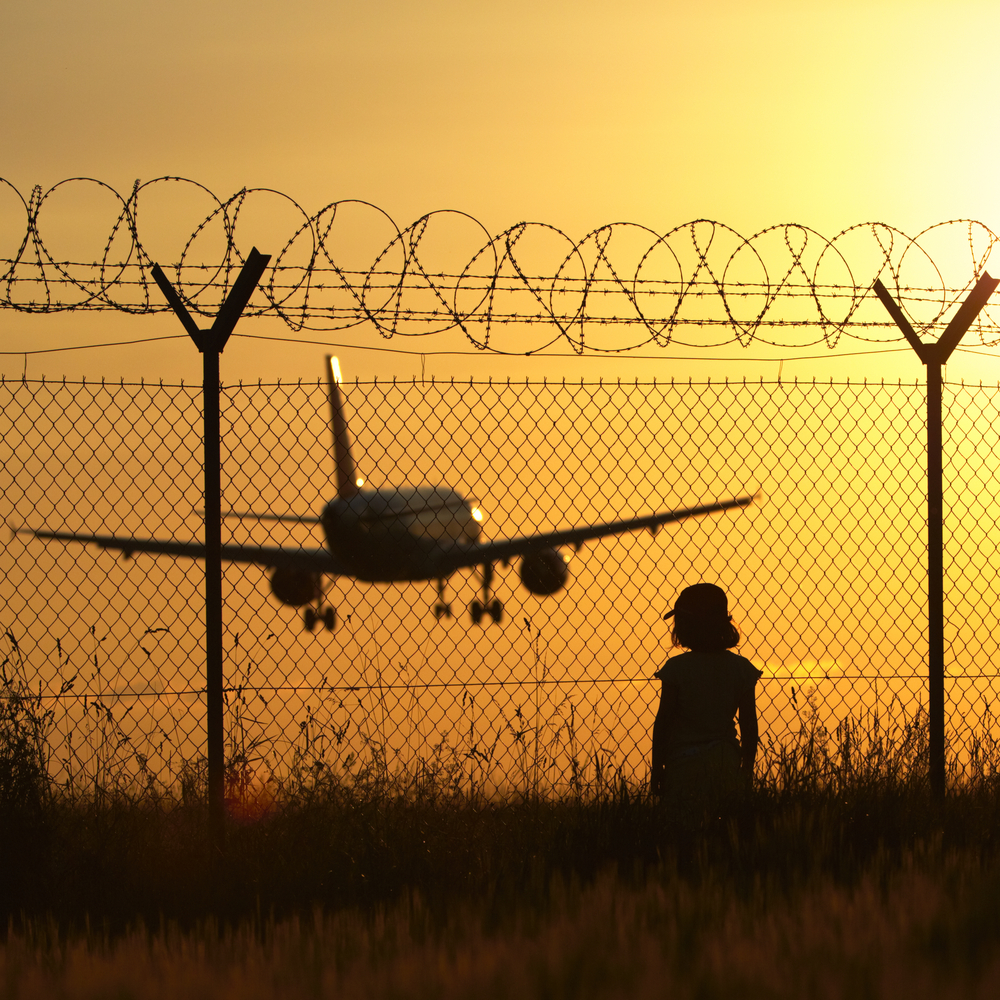President Donald Trump issued a series of Presidential Proclamations in 2017, 2018 and 2020 which restricted travel from certain countries to the United States, commonly referred to as the “Travel Ban”.
 Photo Credit: www.shutterstock.com
Photo Credit: www.shutterstock.com
In 2017, citizens of Chad, Iran, Libya, North Korea, Syria, Venezuela, and Yemen were banned from traveling to the United States because their countries were deemed to have inadequate identity-management protocols and information sharing practices. Citizens of Iraq were not banned from travel outright but were subjected to additional screening measures.
In 2018, citizens of Chad were removed from the list of countries subject to the travel ban instituted in 2017 and became eligible to apply for all visa categories.
In January 2020, President Trump expanded the travel restrictions he instituted in 2017, to include certain foreign nationals from Burma (Myanmar), Eritrea, Kyrgyzstan, Nigeria, Sudan, and Tanzania. The Trump administration imposed these restrictions to travel because these designated countries fail to meet certain security criteria required by the Department of Homeland Security for travel and the issuance of visas to the United States, and because they do not comply with the Department’s identity-management and information-sharing system.
How do these travel restrictions apply to foreign nationals from designated countries?
Travel restrictions instituted by Presidential Proclamation are commonly referred to as the “travel ban”. This characterization is however highly misleading because it suggests that travel is categorically and absolutely banned from designated countries. It suggests that all nationals of designated countries are absolutely banned from travel to the U.S. It is not the case.
These travel restrictions are all limited in scope as well as in time.
Travel to the United States is restricted for foreign nationals of designated countries who (i) are outside the U.S. on the applicable effective date of the restriction, and (ii) who do not have a valid visa on the applicable effective date; and (iii) do not qualify for a reinstated visa or other travel document that was revoked.
The travel restrictions do not apply to lawful permanent residents, they do not apply to foreign nationals of designated countries who are traveling to the U.S. on diplomatic visas, they do not apply those who are dual nationals of a designated country who are traveling to the United States on a passport issued by a non-designated country, they do not apply to those who refugees, asylees. They do not apply to those paroled into the U.S., those traveling to the U.S. on a document other than a visa, those granted withholding of removal or those granted protection under the Convention Against Torture, and they also do not apply to all those who hold a valid visa for travel to the United States.
The travel restrictions also do not apply to those foreign nationals who apply for and are granted a waiver. A waiver is granted if the foreign national can demonstrate to the consular officer that (i) denying entry would cause undue hardship to the foreign national, that (ii) entry would not pose a threat to the national security or public safety of the United States, and that (iii) entry would be in the national interest.
Who do these travel restrictions apply to?
These travel restrictions do not apply in the same manner to all designated countries.
They suspend the entry of immigrants-only- and -only- for Eritrea, Somalia, Nigeria, Myanmar, and Kyrgyzstan. Nationals of Eritrea, Nigeria, Myanmar, and Kyrgyzstan entering the U.S. on nonimmigrant visas, refugees, parolees, asylees, immigrants who have provided assistance to the U.S. government and others, are not restricted from traveling to the United States in any way.
They suspend the entry of immigrants and temporary visitors- only- and -only- from Libya, and Yemen. All other Yemeni and Libyan nationals traveling to the United States on other visa categories are not restricted from travel.
They suspend the entry of all immigrants and nonimmigrants who are nationals of Syria and North Korea, and Iran- with a limited exception for Iranian nationals traveling on F student visas, J exchange visitors visas and M vocational student visas.
They suspend the entry of certain Venezuelan government officials and their family members on visitor’s visas. All other Venezuelan nationals who are not government officials are not impacted by any travel restrictions.
In reality, these Presidential Proclamations are limited in scope, and they are tailored to each country. They are based on the failure of each designated country to meet security criteria required for the issuance of visas and on their failure to comply with the Department’s identity-management and information-sharing system. They are also tailored to the status of diplomatic relations with each designated country.
While it is indisputable that they impeded some business travel and that they resulted in some family separation, they are not based on any indiscriminate attempt by the U.S. government to ban travel from certain countries. They are based on the government’s need to ensure the security of the country. Today’s global world has tamed borders across the globe and inter-country treaties have eliminated the need to apply for a visa before travel for many. Visa application procedures are often perceived as an inconvenience. However, the right to travel to a foreign country is never a right. A visa is a document granting a conditional authorization by a territory to a foreigner, allowing them to enter, remain within, or to leave that territory. A visa, and its underlying right to travel to any country, is a privilege. It is a privilege granted at the sole discretion of the government- it is never a right. These travel restrictions issued by the United States government are a reminder of this essential element of the sovereignty of each country and the United States.
Elsa Ayoub is a member of the exclusive Haute Lawyer Network, specializing in Business Immigration in the New York City, NY area. Visit her Haute Lawyer profile here.


















